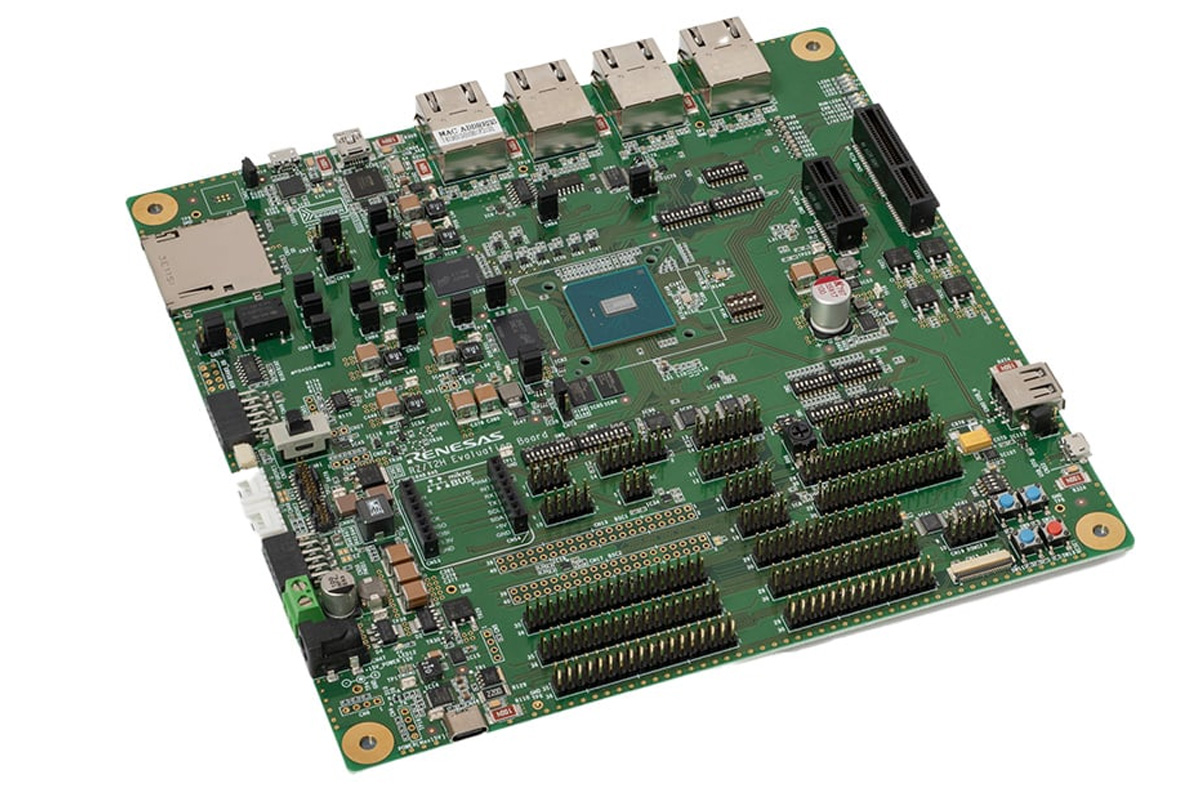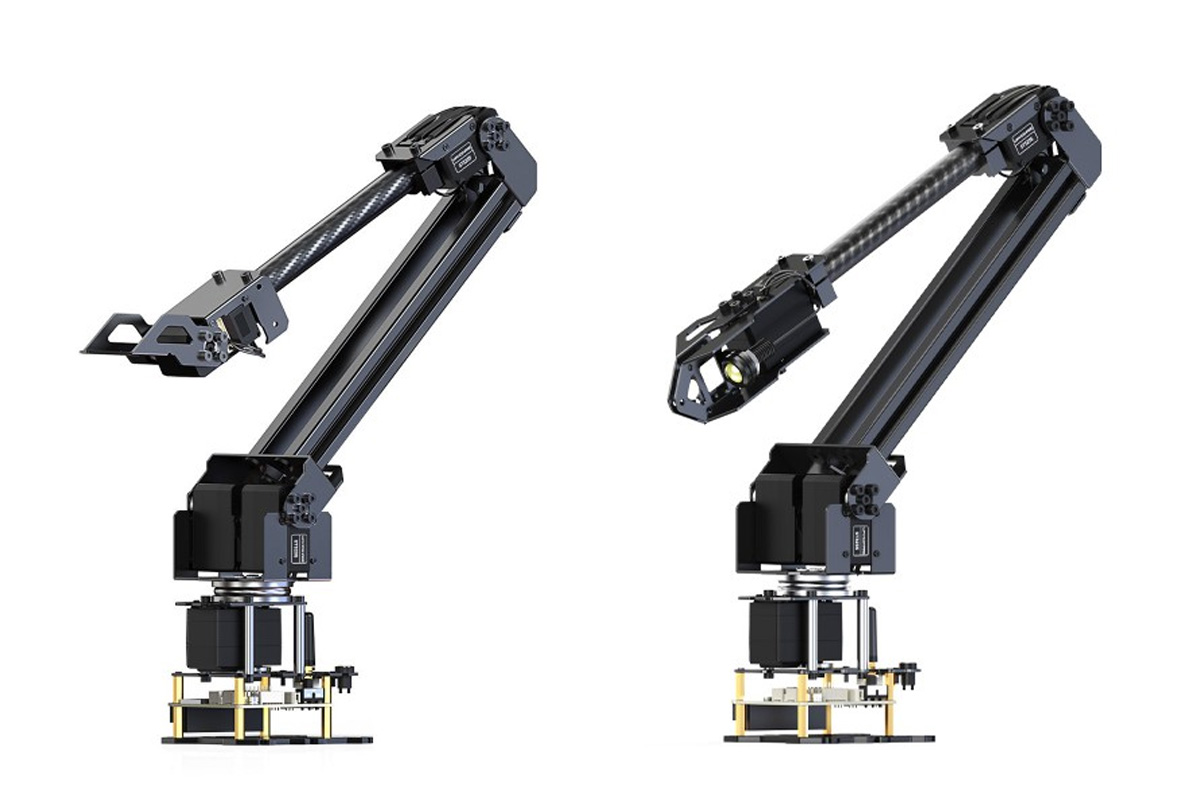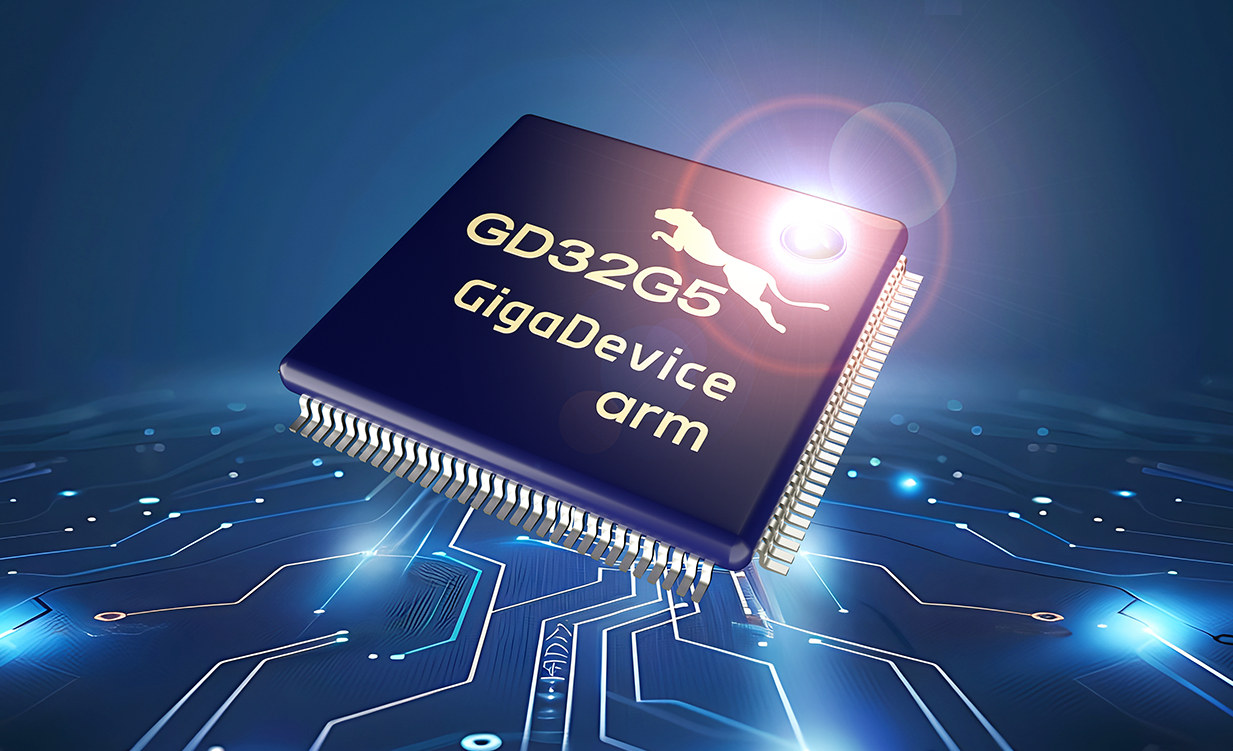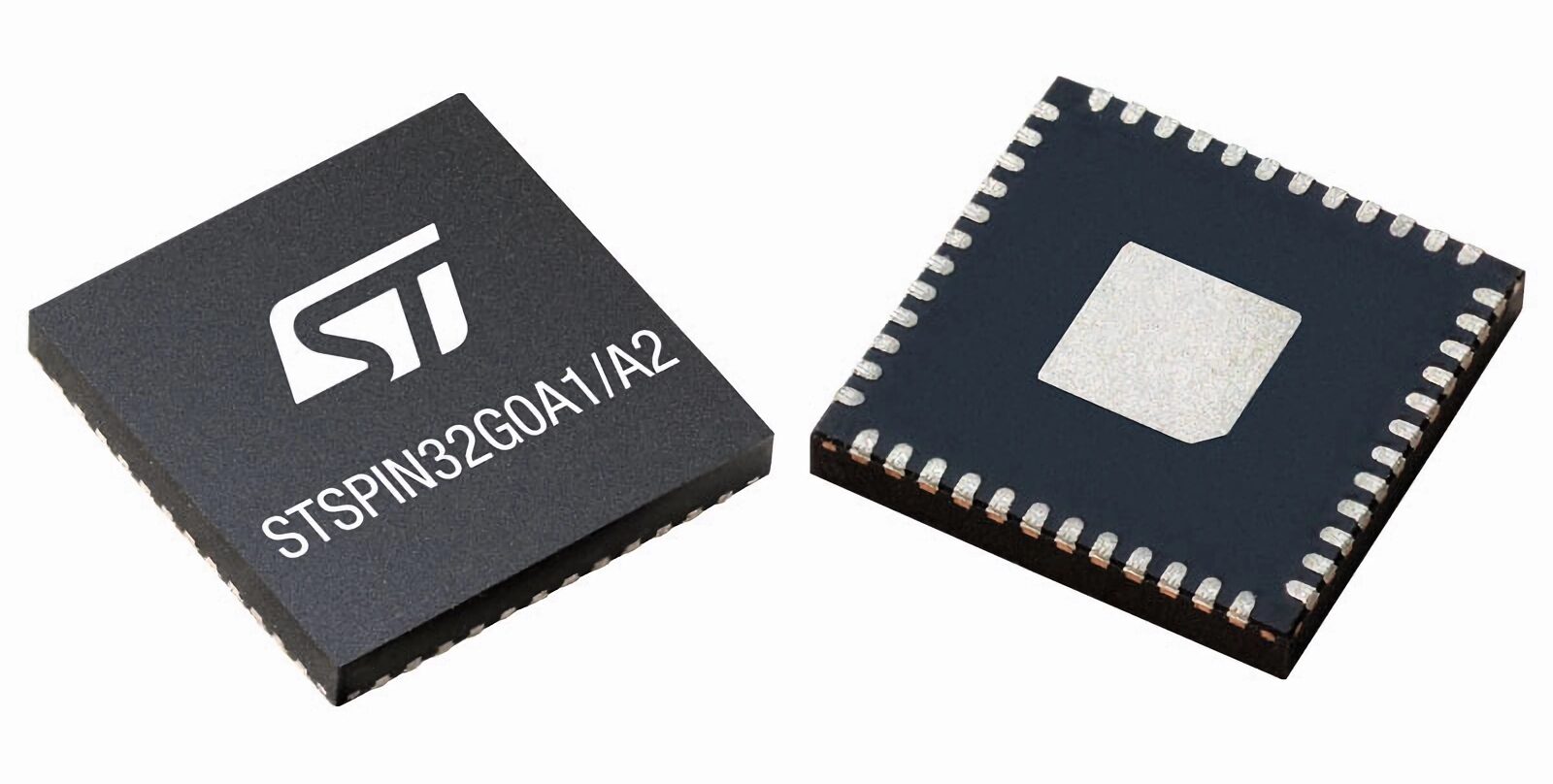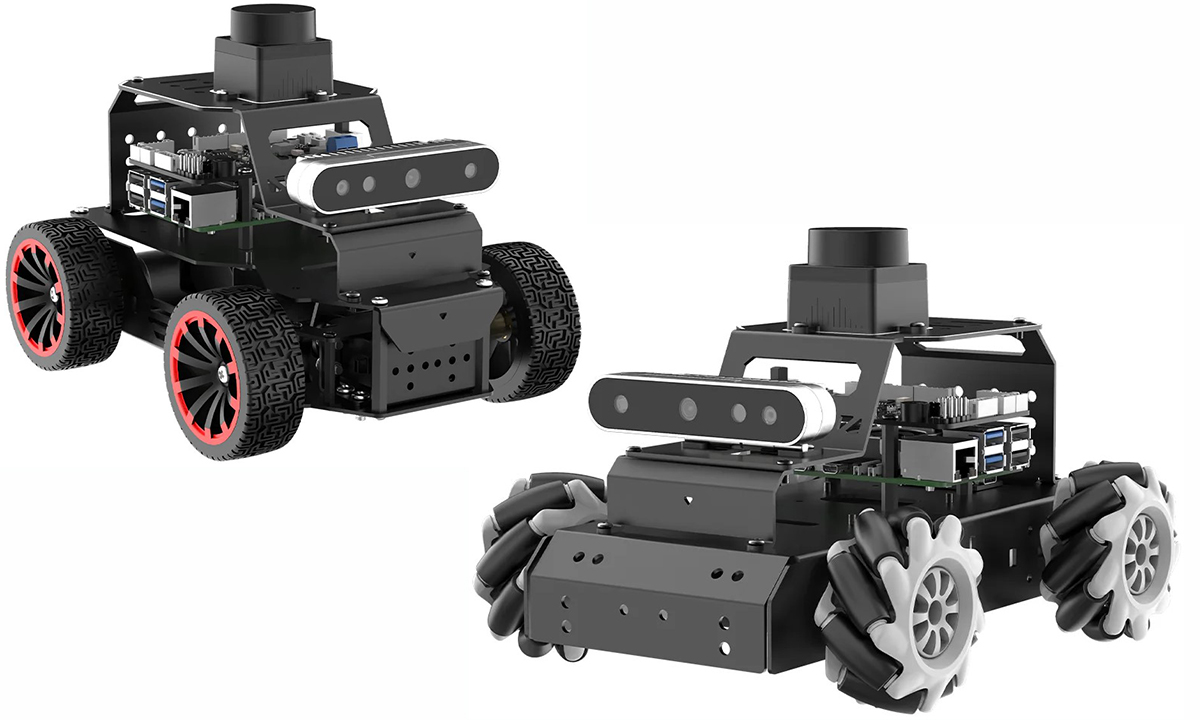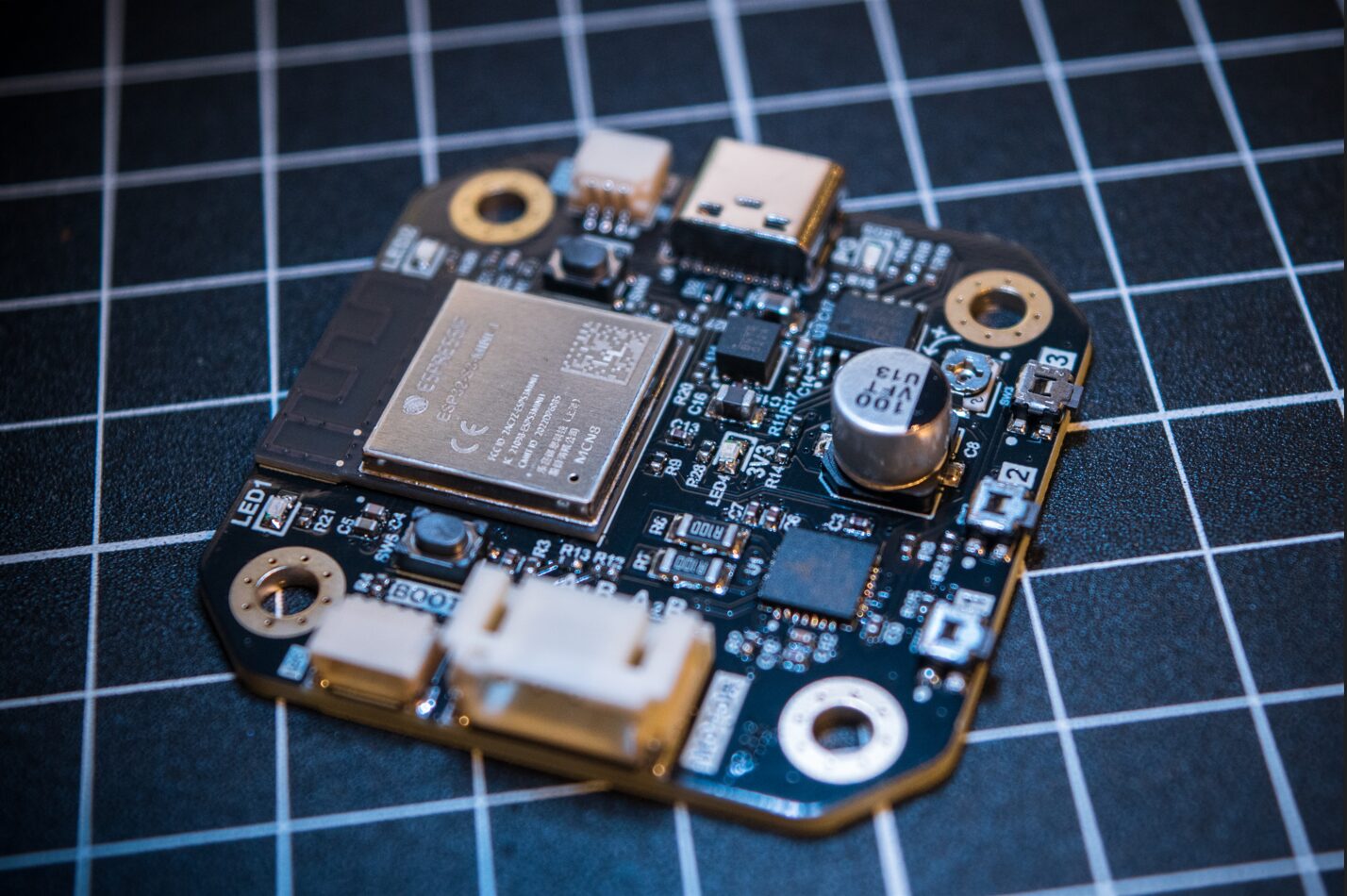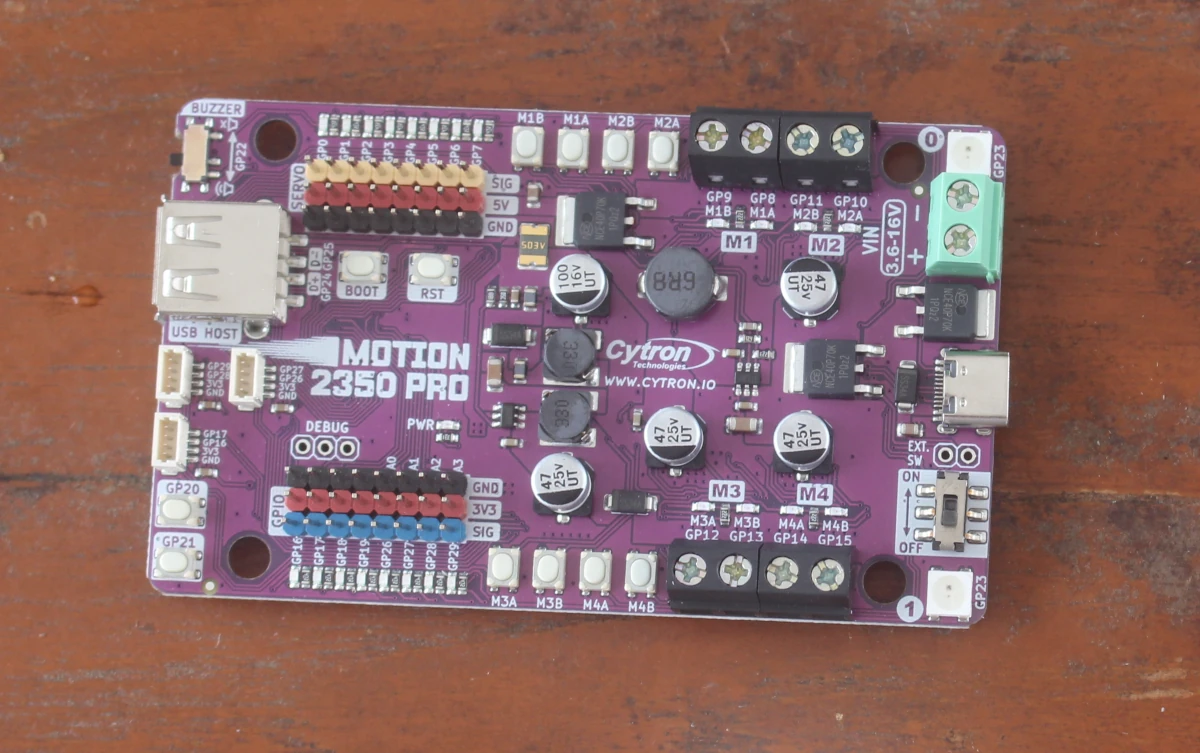Renesas RZ/T2H industrial MPU is the most powerful member of its RZ/T2 series of real-time microprocessors. The MPU features four Arm Cortex-A55 CPUs for application tasks and two Cortex-R52 CPUs for real-time control. It supports 9-axis motor control with 3-phase PWM timers, delta-sigma interfaces, and encoder interfaces. It also supports Industrial Ethernet protocols like EtherCAT, PROFINET, and TSN. These features make it ideal for industrial applications such as industrial robots, PLCs, motion controllers, and CNC machines. Renesas launched the RZ/T2L single-core Arm Cortex-R52 MPU just last year, and before that, in 2022, they launched the RZ/T2M dual Arm Cortex-R52 MPU. The RZ/T2L was just a cost-down version of RZ/T2M with an EtherCAT controller, compared to those old controllers the latest RZ/T2H supports 9-axis motor control and compatibility with various industrial Ethernet protocols. Renesas RZ/T2H specifications: CPU 4x Arm Cortex-A55 (64-bit) clocked at up to 1.2GHz with 32KB L1 I/D cache, 1MB L3 cache 2x […]
LILYGO T-Bao tiny AI robot combines ESP32 and Kendryte K210 RISC-V chip, features camera and display
The T-Bao AI robot is a compact embedded device/robot that combines an ESP32 and a K210 RISC-V microcontroller and can perform face recognition and robotics applications. This compact device features a 1.54-inch 240×240 capacitive touch screen, a 2MP OV2640 camera, a MAX98357A I2S audio amplifier, a DRV8833 motor driver, an MPU6050 6-axis motion sensor, and an AXP202 PMU for power management. Additionally, it supports USB charging, offers LEGO blocks compatibility, and can move around with integrated caster wheels. These features make it usable for educational projects, robotics, IoT applications, and embedded systems prototyping. LILYGO T-Bao specifications SoCs Kendryte K210 dual-core 64-bit RISC-V processor @ 400 MHz with 8MB on-chip RAM, various low-power AI accelerators delivering up to 0.5 TOPS ESP32-D0WDQ6-V3 dual-core Xtensa LX6 processor, 240 MHz, 16MB Flash, 8MB PSRAM Display – 1.54-inch capacitive touch LCD (240×240) Camera – 2MP OV2640 with rolling shutter, UXGA (1600 x 1200) resolution, 180-degree […]
Waveshare RoArm-M2 ESP32 robotic arms offer four degrees of freedom, various servo options
Waveshare has recently launched the RoArm-M2-S and RoArm-M2-Pro ESP32 robotic arms with four degrees of freedom, or 4-DOF for short. The main difference is that the RoArm-M2-S is equipped with standard servos, while the RoArm-M2-Pro features all-metal ST3235 bus servos, adding more durability and performance. Designed for educational and robotics applications, the 4-DOF RoArm-M2 is sturdy yet lightweight, built using carbon fiber and aluminum alloy. It can handle payloads up to 0.5kg and has a workspace diameter of 1 meter. The arm offers high precision with a 12-bit magnetic encoder and dual-drive technology for improved torque and stability. On top of that, it features a 12-bit magnetic encoder and dual-drive technology for improved torque and stability. Other features include a 360° omnidirectional base and support for both wireless (WiFi, ESP-NOW) and wired (USB) control. These features make this device suitable for various applications including industrial automation, education, research, and DIY robotics projects. Waveshare […]
216MHz GigaDevice GD32G5 Cortex-M33 MCU features analog interfaces and accelerators for industrial applications
Starting with the GD32G553 SKUs, the 216 MHz GigaDevice GD32G5 high-performance Arm Cortex-M33 microcontroller family features 256KB to 512KB of embedded Flash with dual-bank Flash support, 128KB of SRAM, and a range of hardware accelerators including a DSP, single-precision FPU, a trigonometric function accelerator (TMU), and other hardware acceleration units, filter algorithms (FAC) and Fast Fourier Transform (FFT). Designed for industrial applications, the GD32G5 microcontrollers also offer a wide range of digital and analog interfaces and enhanced security capabilities suitable for digital power systems, charging stations, energy storage inverters, frequency converters, servo motors, and optical communication. GigaDevice GD32G5 specifications: MCU Core – Arm Cortex-M33 Armv8-M core clocked at up to 216MHz with DSP instruction set and single-precision FPU; up to 316 DMIPS, CoreMark score: 694. Memory/Storage 128KB SRAM (80KB SRAM0 + 16KB SRAM1 + 32KB TCMSRAM) 256KB to 512KB on-chip flash, QSPI interface for external storage External memory controller (EXMC) […]
STMicro STSPIN32G0 3-phase motor controllers support up to 24V for portable appliances, up to 600V for industrial automation
STMicro STSPIN32G0 is a new series of advanced 3-phase motor controllers with variable voltage ranging from 45V to 600V that extend STMicro’s portfolio of devices with an integrated MCU and motor driver. The new series combines a triple-half bridge gate driver with the Arm Cortex-M0+-based STM32G0 microcontroller and is capable of handling six-step and field-oriented control (FOC) algorithms. The integrated design of the STSPIN32G0 series offers cost-savings and “significant BOM area reduction without compromising performance and robustness.” There are two main versions of the STSPIN32G0 series, low-voltage and high-voltage. The low-voltage 3-phase motor controllers include a voltage regulator, one or three shunts, and a gate driver rated at 45V and up to 0.6A. They are mainly targeted at home appliances, power tools, and drones. The high-voltage versions can handle either 250V or 600V, making them suitable for industrial inverters and fans. They are targeted at home appliances, air conditioners, home […]
MentorPi is a ROS2-compatible, Raspberry Pi 5-based robot car with Mecanum or Ackermann chassis
MentorPi is a ROS2-compatible robot car powered by the Raspberry Pi 5, designed for AI-driven robotics and Python programming. It offers two chassis options: MentorPi-M1, which features a Mecanum-wheel chassis, and MentorPi-A1, equipped with an Ackermann chassis. Both variants come with high-performance components such as closed-loop encoder motors, STL-19P TOF lidar, 3D depth cameras, and high-torque servos. These enable precise navigation, SLAM mapping, path planning, and dynamic obstacle avoidance, making MentorPi an ideal platform for robotics tasks. The system utilizes a dual-controller architecture to optimize performance. The Raspberry Pi 5 handles AI vision processing and strategic functions, while Hiwonder’s RRC Lite expansion board manages motion control and sensor data processing. This task distribution enhances efficiency in machine vision, AI-powered navigation, and robotic control, allowing MentorPi to tackle complex AI and vision-based applications with ease. MentorPi also supports advanced features like 3D visual mapping and YOLOv5-based object detection for recognizing road […]
Integrated motor driver and controller bundles ESP32-S3 and TMC2209 for IoT applications
The PD Stepper is a NEMA 17 integrated stepper motor driver and controller board powered by USB power delivery that combines an ESP32-S3 wireless microcontroller, the Trinamic TMC2209 ultra-silent motor driver, and other components onto a single board for Smart Home and automation applications. The maker, Josh R., states that the PD Stepper isn’t another “just because we can” project. It addresses the need for an integrated motor driver and controller module that can used in compact or space-constrained designs. The ESP32-S3 SoC controls the other components on the board and provides wireless connectivity as well as access to development tools and libraries such as ESPHome and ESP-Now. The motor driver IC, Analog Devices’s Trinamic TMC2209, offers efficient, noiseless control of two-phase stepper motors. Other onboard components and connectors include an AS5600 magnetic rotary position sensor, a 3.3V buck converter, a Qwiic/Stemma QT connector, a motor connector, and an AUX […]
Cytron MOTION 2350 Pro – A Raspberry Pi RP2350 board for robotics and motor control
As mentioned in the Raspberry Pi Pico 2 article, third-party RP2350 boards are already available, and one of them is the MOTION 2350 Pro board from Cytron designed for robotics and motor control. The board features a DC motor driver capable of controlling up to 4 brushed DC motors with voltage ratings from 3.6V to 16V. It also features eight 5V servo ports, eight GPIO ports, and three Maker ports for sensor or actuator modules. Each I/O is matched with its own LED which makes the board ideal for the education market and also simplifies debugging. Finally, a USB 1.1 host port is present to connect peripherals such as the RF dongle for a joystick or a keyboard. Cytron MOTION 2350 Pro specifications: Microcontroller – Raspberry Pi RP2350 CPU – Dual-core Arm Cortex-M33 processor @ 150MHz (RISC-V cores are not mentioned, so they are likely not used at all) Memory […]


